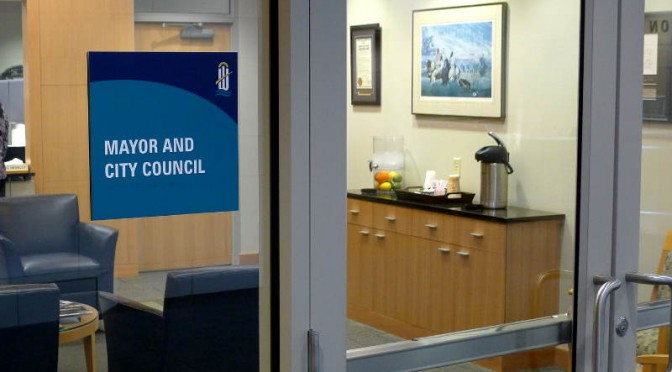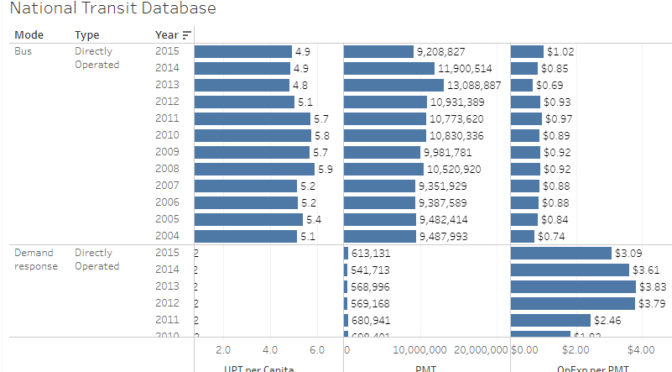Wichita City Council this week. As it is the fourth Tuesday of the month, the Wichita City Council handles consent agenda items only and often has a workshop. Consent agenda items are thought by the agenda-builder to be non-controversial, and are voted on by the council as a group, unless a council member requests to pull an item for individual discussion and voting. … This week’s meeting will also feature the awarding of a key to the city to Kansas Governor Sam Brownback. Perhaps the governor will take a moment to comment on his economic development plan, which discourages the type of targeted incentives that Wichita relies on. … The agenda packet is at 03-22-2011 Council Agenda Packet.
Government the problem. Rasmussen: “Ronald Reagan famously declared in his first inaugural address in January 1981 that ‘government is not the solution to our problem; government is the problem.’ Forty-six percent (46%) of Likely U.S. Voters tell us in a new national telephone survey that that policy position is held mostly by conservatives and 40% say Reagan’s view is shared by most Americans.” The poll finds “Just 19% of the Political Class believe Reagan’s view is shared by most Americans.” The political class is the minority of voters who believe in big government. Rasmussen says they “tend to trust political leaders more than the public at large and are far less skeptical about government.” The Wall Street Journal has more on this at Populism and the Political Class.
Budget worse than thought. “The Congressional Budget Office on Friday released its analysis of President Obama’s 2012 budget proposal and found it does less to rein in deficits and the debt than the administration had estimated.” A large share of the blame is placed on the extension of the Bush-era tax cuts. See CBO: Obama budget worse than projected on 10-year deficit.
Detroit turns schools over to charters. From Education Week: “The financially embattled Detroit school system has announced a controversial plan to turn nearly a third of the district’s 141 schools over to charter operators or education-management organizations by next school year. Officials say their only other option is to close dozens of low-performing schools. If the plan to hand 41 schools over to outside managers is approved by the school board, the 73,000-student Detroit district will be borrowing a page from the same playbook that a growing number of large urban districts seem to be using.” … The article notes that Philadelphia turned over seven schools to charter operators, and Los Angeles will turn over seven next year. Charter schools are funded by public money but operate largely outside the existing public school system. They usually have wide latitude in setting policies, and generally the teachers union is not involved. Not everyone thinks the plan will work, with one critic writing “Chartering schools is not a silver bullet that can solve the long-standing governance, financial, and academic issues that districts like Detroit face.” … Kansas has few charter schools as Kansas law is designed to ensure that few charters will be granted.
The State and the Intellectuals. Murray N. Rothbard asks the question “Why do people obey the edicts and depredations of the ruling elite?” and provides the answer. From For a New Liberty: The Libertarian Manifesto: The answer is that, since the early origins of the State, its rulers have always turned, as a necessary bolster to their rule, to an alliance with society’s class of intellectuals. The masses do not create their own abstract ideas, or indeed think through these ideas independently; they follow passively the ideas adopted and promulgated by the body of intellectuals, who become the effective “opinion moulders” in society. And since it is precisely a moulding of opinion on behalf of the rulers that the State almost desperately needs, this forms a firm basis for the age-old alliance of the intellectuals and the ruling classes of the State. The alliance is based on a quid pro quo: on the one hand, the intellectuals spread among the masses the idea that the State and its rulers are wise, good, sometimes divine, and at the very least inevitable and better than any conceivable alternatives. In return for this panoply of ideology, the State incorporates the intellectuals as part of the ruling elite, granting them power, status, prestige, and material security. Furthermore, intellectuals are needed to staff the bureaucracy and to “plan” the economy and society. … In the modern era, when theocratic arguments have lost much of their lustre among the public, the intellectuals have posed as the scientific cadre of “experts” and have been busy informing the hapless public that political affairs, foreign and domestic, are much too complex for the average person to bother his head about. Only the State and its corps of intellectual experts, planners, scientists, economists, and “national security managers” can possibly hope to deal with these problems. The role of the masses, even in “democracies,” is to ratify and assent to the decisions of their knowledgeable rulers.
Global warming panic explained. A liberal tries to explain why she thinks the world will end, and what should be done about it. From Battlefield315.

 There’s another way that KPERS is stealing from future taxpayers. When performing projections, a key variable is the discount rate, which is to say, the rate that KPERS expects to achieve on its investments, over the long term. Small changes in the discount rate have large impacts. The nearby illustration from the KPERS annual report for 2015 shows that using a discount rate of 8.00 percent, the KPERS unfunded liability is slightly less than $9 billion. Change the discount rate to 7.00 percent, and the unfunded liability rises to almost $12 billion.
There’s another way that KPERS is stealing from future taxpayers. When performing projections, a key variable is the discount rate, which is to say, the rate that KPERS expects to achieve on its investments, over the long term. Small changes in the discount rate have large impacts. The nearby illustration from the KPERS annual report for 2015 shows that using a discount rate of 8.00 percent, the KPERS unfunded liability is slightly less than $9 billion. Change the discount rate to 7.00 percent, and the unfunded liability rises to almost $12 billion.

